
JOURNAL OF PALEOLIMNOLOGY
metrics 2024
Connecting the Dots Between Earth and Water
Introduction
JOURNAL OF PALEOLIMNOLOGY, published by Springer, stands as a pivotal resource in the field of paleolimnology, bridging the disciplines of aquatic sciences and earth-surface processes. With an impact factor that showcases its scholarly influence and ranking it in the Q2 category for both Aquatic Science and Earth-Surface Processes, this journal has established a reputation for advancing our understanding of past aquatic environments through rigorous studies of sedimentary records. Since its inception in 1988, it has become a vital platform for researchers to disseminate their findings on climate change, biodiversity, and ecological shifts, revealing insights crucial for contemporary environmental science. Despite the lack of open-access options, the journal provides numerous subscription-based resources, ensuring that vital research is accessible to a wide audience. Located in the Netherlands, the journal continues to attract contributions from a global network of scholars aiming to explore the interplay between environmental change and aquatic systems.
Metrics 2024
 0.56
0.56 1.70
1.70 1.80
1.80 90
90Metrics History
Rank 2024
Scopus
IF (Web Of Science)
JCI (Web Of Science)
Quartile History
Similar Journals

Frontiers of Earth Science
Unveiling the Secrets of Earth ScienceFrontiers of Earth Science is a prominent academic journal in the field of Earth and Planetary Sciences, published by Springer. With an ISSN of 2095-0195 and an E-ISSN of 2095-0209, this journal serves as a significant platform for researchers and professionals to disseminate their findings from 2007 to 2024. It is recognized for its impactful contributions within the category of Earth and Planetary Sciences, boasting a respected Q2 ranking in 2023. With a Scopus ranking of 64 out of 195, placing it in the 67th percentile, Frontiers of Earth Science continues to drive academic dialogue and innovation. The journal is dedicated to exploring a diverse range of topics, including geology, meteorology, and environmental science, and amplifying the understanding of Earth systems through rigorous research. Located in New York, USA, this journal embraces an Open Access model, ensuring that groundbreaking research is readily available to the global scientific community, thereby enhancing its accessibility and impact.

Aquatic Biology
Connecting Science and Conservation in Aquatic EnvironmentsAquatic Biology, published by INTER-RESEARCH, is a leading open-access journal dedicated to the scientific exploration of aquatic ecosystems, promoting innovative research in the fields of aquatic science, ecology, and oceanography since its inception in 2007. With an E-ISSN of 1864-7782, the journal publishes original articles, reviews, and data papers that contribute to the understanding of aquatic biology in its myriad forms. As of 2023, it holds a respectable Q3 ranking across multiple categories including Aquatic Science and Ecology, reflecting its sustained impact within the scientific community. Situated in Germany, Aquatic Biology operates a policy of open access since 2014, ensuring that valuable research findings are readily available to researchers, professionals, and students worldwide, thus fostering collaboration and knowledge dissemination. By addressing diverse aquatic topics, the journal plays a crucial role in advancing the study and conservation of marine and freshwater environments, making it an essential resource for anyone seeking to deepen their understanding of aquatic systems.
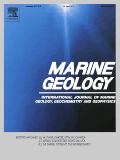
MARINE GEOLOGY
Advancing Knowledge of Oceanic Geological Processes.MARINE GEOLOGY, published by Elsevier, is a premier journal dedicated to advancing the understanding of marine geological processes and their interactions with the Earth's systems. With an ISSN of 0025-3227 and an E-ISSN of 1872-6151, this esteemed journal has been a vital resource for researchers and professionals since its inception in 1964. The journal is recognized for its high impact, with commendable rankings, including Q1 in both Geology and Oceanography, and Q2 in Geochemistry and Petrology according to its 2023 category quartiles. With a Scopus rank within the top percentiles in various fields, MARINE GEOLOGY offers a platform for original research, critical reviews, and significant advancements in the field, covering topics ranging from sedimentology to geochemical processes in marine environments. Although it does not operate under an open-access model, its rigorous peer-review process ensures high-quality publications that contribute to our understanding of oceanic and geological sciences. Researchers, students, and professionals alike will find MARINE GEOLOGY to be an essential resource for collaboration and discovery within the vast field of marine science.
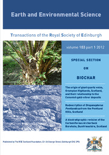
Earth and Environmental Science Transactions of the Royal Society of Edinburgh
Unveiling the complexities of our planet's systems.Earth and Environmental Science Transactions of the Royal Society of Edinburgh is a prestigious journal published by Cambridge University Press, dedicated to advancing research in the field of Earth and planetary sciences, as well as environmental science. With its ISSN 1755-6910 and E-ISSN 1755-6929, the journal has established itself as a crucial platform for disseminating innovative research and comprehensive reviews since its inception in 2007. Positioned in the Q3 quartile for both Earth and Planetary Sciences and Environmental Science, it contributes significantly to the ongoing dialogue and development in these areas, boasting a Scopus ranking that reflects its commitment to scholarly excellence with an emphasis on interdisciplinary approaches and real-world applications. The journal is based in the United Kingdom, with its editorial office located at the Edinburgh Building, Shaftesbury Road, Cambridge. As an essential resource for researchers, professionals, and students alike, Earth and Environmental Science Transactions offers opportunities for open discourse on pressing environmental challenges, fortifying its role in fostering a deeper understanding of our planet's systems and their interconnectedness.

Journal of Oceanology and Limnology
Fostering Dialogue on Aquatic SustainabilityJournal of Oceanology and Limnology, published by SCIENCE PRESS, is a premier academic journal dedicated to advancing the fields of oceanography and limnology. With an ISSN of 2096-5508 and E-ISSN 2523-3521, this journal has emerged as a vital resource since its inception, aiming to disseminate cutting-edge research and comprehensive studies on aquatic environments. Based in China and indexed with notable rankings in Scopus, including a Q2 category in Oceanography and a Q3 category in Water Science and Technology, this journal significantly contributes to knowledge in these crucial scientific disciplines. The H-index for the journal is currently being established, reflecting its evolving impact within the academic community. Moreover, the open access model promotes wider dissemination, ensuring that research findings are accessible to a global audience. Covering a diverse range of topics from ecosystem health to climate impact on water bodies, the Journal of Oceanology and Limnology aspires to foster interdisciplinary dialogue and innovation among researchers, professionals, and students engaged in understanding and preserving aquatic life.
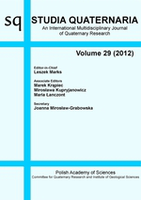
Studia Quaternaria
Illuminating the complexities of our planet's surface.Studia Quaternaria is a leading academic journal published by the Polish Academy of Sciences, Institute of Geological Sciences, specializing in the dynamic fields of Earth-Surface Processes and Geology. With an ISSN of 1641-5558 and an E-ISSN of 2300-0384, this journal has been a prominent platform for scholarly discourse since its inception in 2000. Operating under the open-access model, it aims to disseminate high-quality research that is accessible to a global audience. Studia Quaternaria holds a Q3 ranking in both relevant quartiles as of 2023, indicating its commitment to advancing knowledge in its disciplines despite centering in competitive academic environments. With its publications indexed in Scopus, the journal remains a valuable resource for researchers, professionals, and students looking to stay abreast of innovations and discoveries in Earth-Surface Processes and Geology. Encompassing a broad scope of studies, the journal represents an essential contribution to the geological sciences, fostering a deeper understanding of our planet's changes and processes.
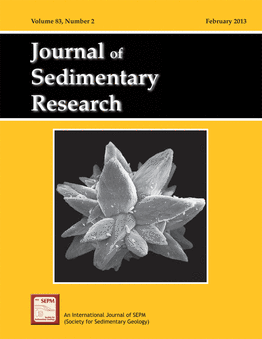
JOURNAL OF SEDIMENTARY RESEARCH
Illuminating the Complexities of Sedimentary EnvironmentsThe JOURNAL OF SEDIMENTARY RESEARCH, published by SEPM-SOCIETY FOR SEDIMENTARY GEOLOGY, stands as a pivotal peer-reviewed journal in the field of sedimentary geology. With an ISSN of 1527-1404 and an E-ISSN of 1938-3681, this esteemed journal features a broad scope, delving into the intricacies of sedimentary processes, lithology, and stratigraphy since its inception in 1931. Enjoying a distinguished reputation, it has achieved a Q1 category ranking in Geology for 2023 and ranks 87 out of 321 in Earth and Planetary Sciences, placing it in the 73rd percentile among its peers in Scopus. With continued access options available, it facilitates the dissemination and discussion of cutting-edge research that shapes the understanding of sedimentary phenomena. Researchers, professionals, and students alike benefit from this critical platform that fosters academic engagement and drives progress within the field.
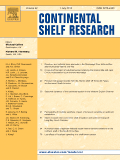
CONTINENTAL SHELF RESEARCH
Innovating Understanding of Marine Resources and ProcessesCONTINENTAL SHELF RESEARCH, published by PERGAMON-ELSEVIER SCIENCE LTD, is an esteemed journal within the fields of Aquatic Science, Geology, and Oceanography, reflecting a compelling intersection of these disciplines. Since its inception in 1982, this journal has served as a premier platform for disseminating cutting-edge research relevant to the continental shelf ecosystem, including its geological features, biological resources, and physical processes. With a Category Quartile ranking of Q1 in Aquatic Science and prominent Q2 standings in Geology and Oceanography, it is recognized for its rigorous peer-review standards and impactful contributions, evidenced by its respective rankings in Scopus. Researchers and professionals are encouraged to engage with the journal's array of high-quality articles that not only enhance scientific understanding but also inform policy and conservation efforts. This dedication to advancing knowledge makes CONTINENTAL SHELF RESEARCH an essential resource for those passionate about marine and coastal studies in the United Kingdom and globally.

Inland Waters
Charting the Course for Aquatic Science ExcellenceInland Waters, published by TAYLOR & FRANCIS LTD, stands as a prestigious scholarly journal dedicated to the critical examination of freshwater ecosystems and their management. With an ISSN of 2044-2041 and an E-ISSN of 2044-205X, this journal boasts a remarkable Q1 ranking in both Aquatic Science and Water Science and Technology for 2023, reflecting its significant impact in the field. Researchers and professionals can benefit from its comprehensive coverage of cutting-edge research, methodological advancements, and policy implications concerning inland waters. Committed to disseminating valuable knowledge in a vital area of environmental science, Inland Waters aims to foster collaboration and promote innovative solutions for sustainable water management practices. As it continues through its converged years from 2012 to 2024, the journal remains an essential resource for those dedicated to advancing our understanding and stewardship of freshwater environments worldwide.
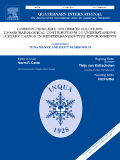
QUATERNARY INTERNATIONAL
Advancing Knowledge of the Quaternary Period.Quaternary International is a prestigious journal published by Pergamon-Elsevier Science Ltd, focusing on the interdisciplinary study of the Quaternary Period, which encompasses significant geological, hydrological, and climatic changes. With an ISSN of 1040-6182 and E-ISSN 1873-4553, it stands as a critical resource in the realm of Earth-Surface Processes, achieving a strong position within the academic community, evidenced by its 2023 Scopus rank of #32 out of 179 in this category, corresponding to an impressive 82nd percentile. Since its inception in 1989, this journal has provided valuable insights and contributed to the advancement of knowledge in the Earth and Planetary Sciences. Researchers, professionals, and students alike will find a wealth of original research articles, reviews, and case studies that inform and inspire further studies in the Quaternary sciences. Although the journal does not currently offer open access options, its reputation for rigorous peer review and impactful content underscores its significance in shaping scholarly discourse in the field.